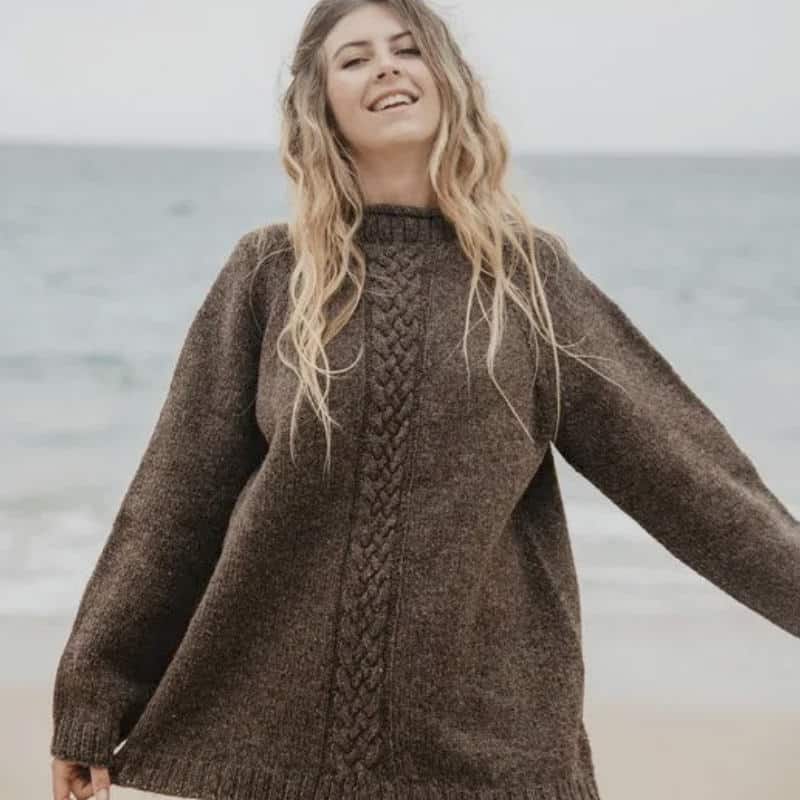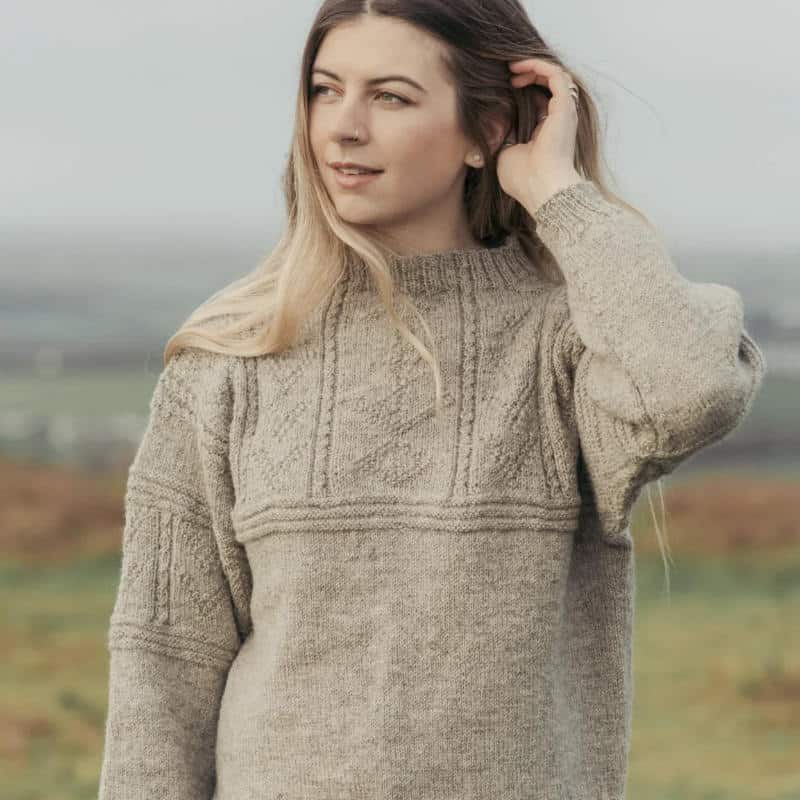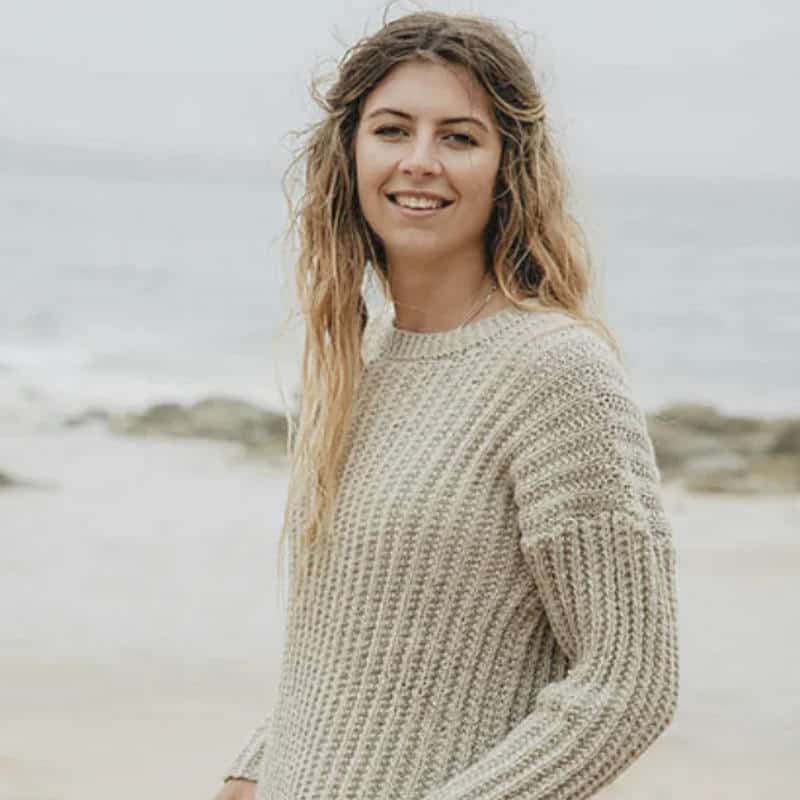Blacker YarnsINTERVIEW
Crafting Rare Breed Yarn in One of the UK's Last Vertical Mills

We're back with a new 'Meet the Maker' interview. This week we sat down with Colin the CEO of Blacker yarns and also The Natural Fibre Company. So, if you have 5 minutes grab a cuppa and learn how one of Britain's last vertical mills crafts rare breed wool and yarn in Cornwall.
SGB: Hello Colin, first of all, how did Blacker Yarns come about?
Colin: Blacker Yarns is the own brand of finished products for The Natural Fibre Company. The business was incorporated into the Blacker Sheep Ltd until 2019 when the essential business was set up as a separate Limited Company.
SGB: Where does the name Blacker Yarns come from and why was it chosen?
Colin: The original owner Sue Blacker (deceased) created the brand name to sell its own product range of rare breed, wool sourced from the UK and spun in the mill in Launceston Cornwall.
SGB: Describe the Blacker Yarns the brand in 3 words?
Colin: Natural Fibres, Traceability, Premium
SGB: You create your beautiful yarns in a Vertical Mill, can you explain what a vertical mill is and how it differs from a normal mill?
Colin: It’s a complete manufacturing process under one roof of sourcing, sorting, scouring and drying, carding, spinning (Woollen or Worsted) and finishing. The differential from others UK mills is small batch; bespoke; full end to end service.
SGB: Can you tell us a bit about your own Vertical Mill in Cornwall?
Colin: The Natural Fibre Company is an award winning, GOTS certified Mill which specialises in the processing of small batch wool products for customers throughout the UK and Europe. More recently it has successfully completed a number of New Product Developments and R & D projects working in partnership with commercial end users. The emerging business model is as a customisation and development house for wool products.
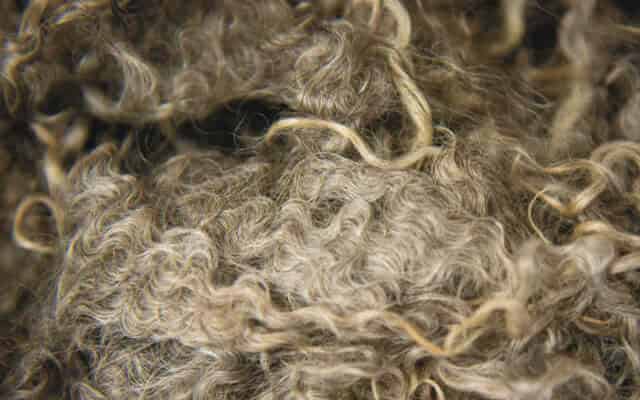
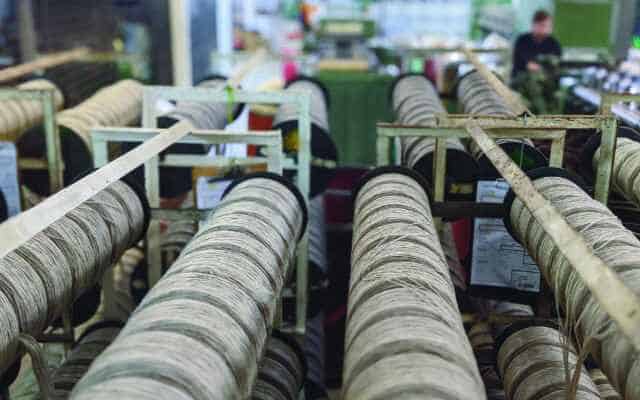
SGB: What is the process of making your yarns from beginning to end?
Colin: The end to end process is as follows: 1) Source the raw material 2) Sort and filter 3) Scour and clean 4) Dry 5) Card 6) Spin to woolen or worsted specifications 7) Finish and fulfilment 8) Despatch
SGB: What kind of machinery is used for you to produce your yarns and how much is done by hand?
Colin: The yarn production is a combination of manual and machine processing at every stage. because of the bespoke nature of the manufacturing process, rarely are two orders the same specification hence the R & D opportunities. The machines are traditional textile machines requiring a high degree of preventative maintenance, repairs and renewals. The automation element of the processing comes from the spinning, auto baller and hank frames.
SGB: Is there a particular part of the process that you love the most and why?
Colin: Seeing how a raw material like wool can be made and blended into so many different end products. Our ability to trace where the wool came from and where it ends in terms of the customer and market destination.
SGB: How do you choose the type of base wool for your yarns and where is the wool sourced from?
Colin: All breeds will differ in yarn style: lustre and hill sheep tend to produce less elastic, leaner yarns while downland and merino sheep produce bulkier yarns. Alpaca and mohair are lean. Also the lustre yarns are more dense, so can weigh more per unit length, so yardage may be less in a ball/skein of the same weight of Blue-faced Leicester than of Shetland.
Certain wool is best suited to specific needs i.e. thickness, spinning characteristics; blended products; sustainability qualities; organic. Our wool is sourced from all over the UK and in some cases Europe. We recently delivered a limited edition yarn for a premium knitwear company who required a specifically sourced and full traceability wool.
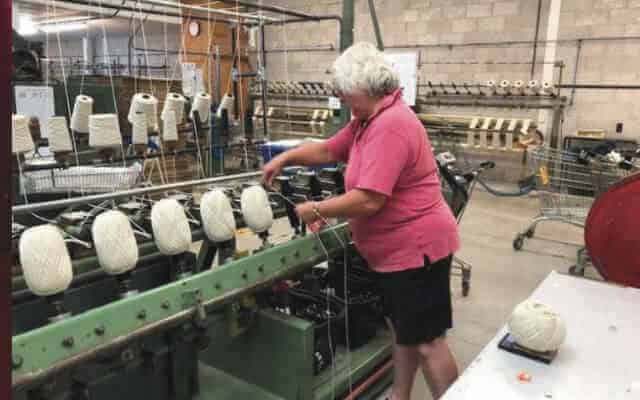
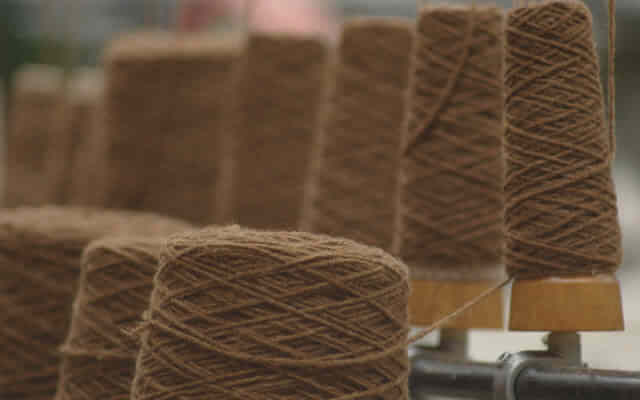
SGB: The use of quality materials is something that we value at SGB, can you tell us a bit about the importance of base wool in creating your yarns?
Colin: More recently wool has begun to regain its position due to a growing recognition of the wonderful qualities of this fibre: it insulates against hot and cold, absorbs moisture, is hypoallergenic, fire retardant, elastic and has memory. It is also able to insulate against ultra violet light. None of cotton, linen, silk nor artificial fibres do all of this as well as wool.
This is one of the greatest joys of wool: not only need there be no waste (even the short and dirty edges make great mulch and compost); there is a growing demand for waste product to be used in a variety of textile products. Each breed produces an utterly individual yarn for which there is an ideal use, whether it be for knitwear, baby clothes, textile covers, baby clothes.
SGB: Following on from that, is there any part of the process that makes Blacker Yarns special compared to other yarn manufacturers?
Colin: Our various ranges of UK knitting and crochet wool yarns cover everything from every-day classic good value, through interesting and rare, to very special luxury yarns. Our ranges offer a choice to find the right yarn for every project, whether simple or complicated, easy or difficult, large or small, our customers regularly comment on their beautiful, durable crochet and knitting wool yarns, which will make unique and long-lasting gifts, accessories or garments.
SGB: What excites you most Blacker Yarns as a business?
Colin: We are making a contribution to the resurgence of UK Textiles, quality brands and the opportunities being created for wool products.
SGB: Let’s talk sustainability, what approach to sustainability do you take?
Colin: The exclusive use of natural fibres with full traceability is key to our core values. The business is proactively pursuing circular economy practices both manually with its raw material sourcing to embracing new technologies aimed at digital traceability from farm to garment.
SGB: Is there anything exciting in the pipeline for Blacker Yarns?
Colin: The future opening of our own dye house facility initially to dye our own yarns therefore controlling our supply chain and then opening up to commercial small batch dyeing.
Thank you Colin, that was very enlightening and great to hear that British wool manufacturing is still going strong. Blacker Yarns also produce some beautiful knitting kits of classic British jumpers. Click the links below, they also make wonderful British made gifts for the knitter in your life.

